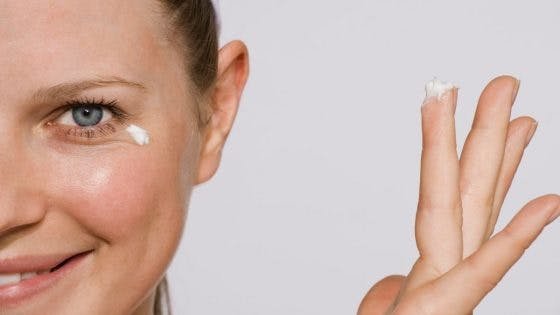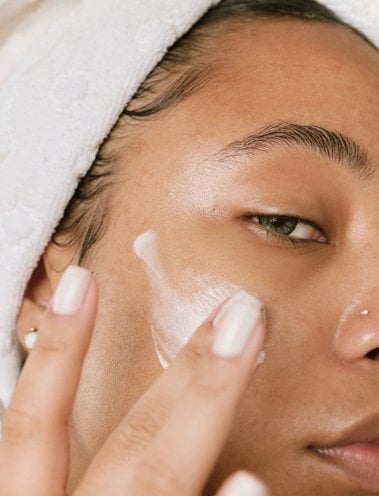Are Retinol Eye Creams Worth The Hype? The Experts Weigh In

Have you ever considered using a retinol eye cream? From reducing the appearance of fine lines and wrinkles to decreasing hyperpigmentation, there are ways in which using a retinol eye cream can transform your skin. But you should be aware of some things before you take the plunge. Dr Fadi Haddad, Cosmetic Dermatologist at Dr Kayle Aesthetic Clinic Dubai, explains everything. In this article, we also recommend a natural solution of retinol for those who want a calmer treatment.
What is retinol?
“Retinol comes in various guises, and the term is used as an umbrella for many different grades and strengths,” says Dr Haddad. “Vitamin A is the first generation of retinol in its purest form. He adds that this is medical grade retinol is available via prescription only,” he adds. Vitamin A is very active and must only be used under medical supervision.
Not all retinoids are prescription strength, though, and whilst this category tends to be a little more mellow than Vitamin A, they should still be used according to professional guidance.

What does retinol eye cream do?
The skin around the eye area is about four times thinner than the skin on the rest of the body.
Retinol under eye cream helps to slow the natural breakdown of collagen as we age, as well as helping to stimulate new collagen production and increase cell turnover. This means it helps the skin to exfoliate itself more effectively, which makes the eye contour area appear brighter and more youthful in the long run.
Benefits of retinol eye cream
“Retinol boosts collagen and stimulates cell production,” Haddad explains. “This exfoliating effect
unveils new, brighter, and more even-toned skin that boasts increased levels of collagen and elastin,” he adds. Retinol can also reduce the appearance of sunspots, fine lines and wrinkles around your eyes.
The drawbacks of retinol eye cream
One of the main concerns is skin irritation, especially for those with sensitive skin. Retinol eye cream can cause redness, dryness, peeling, and a stinging sensation, particularly when first introduced to a skincare routine.
Another drawback is photosensitivity; retinol makes the skin more sensitive to sunlight, increasing the risk of sunburn and long-term sun damage if proper
Furthermore, pregnant or breastfeeding individuals are often advised to avoid retinol due to potential risks to the baby. Consistency and patience are required to see results, which can take several months, and improper usage or overuse can exacerbate skin issues.
Additionally, retinol may not be suitable for individuals with conditions like eczema or rosacea.
The best solution - Plant-based retinol
Whether you have particularly sensitive skin or prefer a more natural approach, there are some natural alternatives to retinol that you can use to achieve similar results, such as:
Best plant-based retinol eye cream
So here is one of the best natural retinol eye creams you can find in the market:
Shop related products
Super Restorative Night Cream - All Skin Types
50 ml
A restoring night cream for all skin types which actively revives the skin’s radiance with organic harungana - nature's retinol and vitamin C derivative.
LUXURY SIZE
Super Restorative Remodelling Serum
50 ml
Now in a larger 50ml size! The multi-intensive anti-ageing treatment that helps reshape contours of the face and restore radiance.
